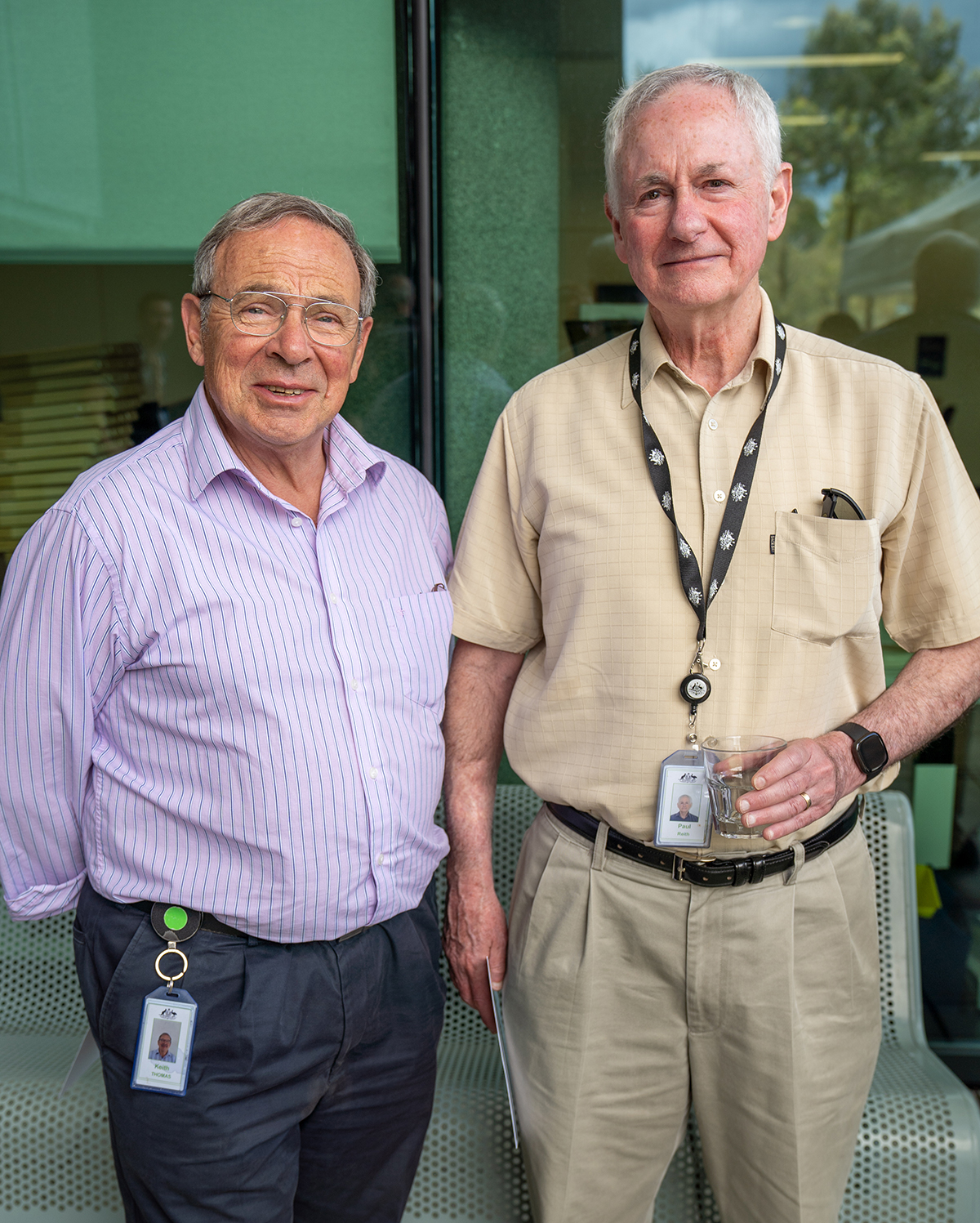To mark International Volunteer Day, Geoscience Australia staff gathered to acknowledge the important contributions made by their group of dedicated volunteers over 2021 at a thank you event.
Geoscience Australia's Chief Executive Officer Dr James Johnson opened the event with a warm thank you to all the volunteers for their skills, passion and diligence despite a challenging year.
"Our group of over 400 volunteers, both digital and onsite, have contributed more than 3,000 hours of volunteer work to Geoscience Australia this year," Dr Johnson said.
"While you work on a wide range of projects, I know you are all united by a commitment to describing, understanding and sharing the amazing stories of the geology and geography of Australia and your work truly helps us to apply geoscience to Australia's most important challenges."
In the wake of another year of lockdowns Dr Johnson congratulated the volunteers on the incredible patience and resilience they had shown during the COVID-19 pandemic.
"Despite lockdowns, you have achieved so much this year. Including the transcription of around 30,000 sample submission forms and photographing over 5,000 images of the mineral and shell collection," Dr Johnson said.
"Collections are so much more meaningful when they are accessible, and I hope this work will inspire future research projects and collaborations around the world."

Geoscience Australia volunteers with CEO James Johnson
Front row, left to right: Keith Thomas, Alan Marks, Julia Brand, Kathryn Keane, Henk Ten Brummelaar
Back row, left to right: Paul Reith, Craig Munns, James Johnson, Michael Pass, John Laurie, David Wilson, Diana Kirby, Peter Butler
Other volunteers were recognised for their herculean effort to review the entire mineral and meteorite collection and for the ongoing efforts to check references and quality control historic records for the Commonwealth Palaeontology Collection research publication review.
Dr Johnson especially thanked volunteer Carmel Leahy, for her tenacity when working with palaeontology papers and records.
Carmel, a retired, librarian, said she enjoyed unearthing long-lost articles using fragments of information.
"I've always been a research lover so citing the fossil samples is right up my alley. It's like being a detective. I love the challenge," Carmel said.
A special congratulations was also given to Teresa Van Der Huel, who was awarded the Innovation Award at the Canberra Region Volunteering Awards for digitising over half a million records covering areas such as geology, Antarctic journals and fungi over the last 8 years.
Dr Johnson concluded his remarks by saying that Geoscience Australia was a richer, more interesting place because of its volunteer program and because of the contributions made by volunteers.
Geoscience Australia's volunteer program offers opportunities to volunteer across the organisation in suitable roles.

Geoscience Australia volunteers Keith Thomas and Paul Reith
Keith Thomas began volunteering with Geoscience Australia two years ago after a career in IT.
"My wife saw an advertisement in the University of the Third Age bulletin and she said, 'you're interested in rocks and you're disappointed you didn't do that as a career so why don't you go along and volunteer?'" Keith said.
"Lo and behold it's been quite interesting to see all these different samples and going through the different places they've been collected from."
Paul Reith started volunteering after nearly 40 years in the Air Force.
"I was in a very busy job at the end there and people had warned me to have something to transition into. I'd always been interested in geology so this seemed to be a good fit for what I was trying to do and it has worked out exceptionally well," Paul said.
"The work is really interesting, you get to read records that go back to the '50s and '60s, stuff from Antarctica and all over the world. It keeps your brain active."






